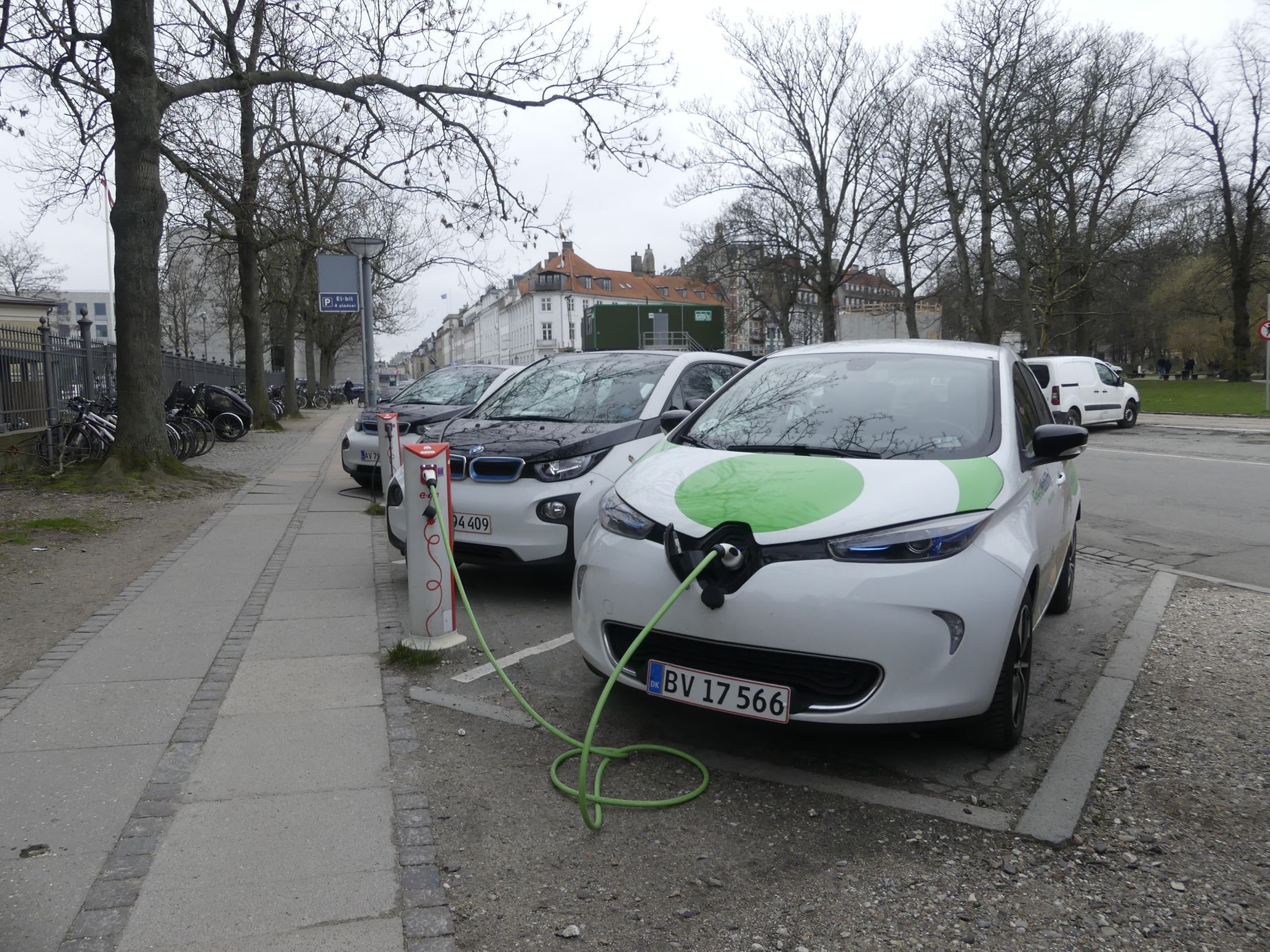The Scandinavian countries are traditionally among the “greenest” minds in Europe. In June of this year, Danish lawmakers voted to plan to bring carbon dioxide emissions to 70 percent of 1990 levels by 2030. Logically, this means that Danish drivers should switch to electric cars.
So in March this year, the Danish Climate Change Council proposed that one million electric cars should be driven in the Nordic country in ten years. However, this has a major catch, Denmark has not yet been one of the electromobile powers.
According to the Danish Passenger Car Importers Association, which he cites Bloomberg, electric cars currently account for less than one percent of the total 2.7 million cars on local roads. Not even 20,000 of them go there. This is despite the fact that their sales have been growing recently and Denmark, which receives half of its electricity from wind turbines, would be a good example for the development of clean electricity mobility.
The reason is the taxes that the state treasury collects for the purchase of a car. For a regular car with an internal combustion engine and a price of up to 193,400 Danish crowns (about 690,000 of ours), the Danes will pay 85 percent of the purchase price for tax. If the purchase price is higher than the aforementioned DKK 193,400, you will add 150 percent of the difference between the purchase price and the above limit to the tax. Not surprisingly, last year the best-selling cars in the country were small cars such as the Citroën C1, Citroën C3, Peugeot 208, VW Polo, Toyota Yaris and Renault Clio.
Exceptions have so far been set for electric vehicles. For cars in the outlet, this tax is paid only if their price exceeds 400 thousand Danish, ie about 1.4 million Czech crowns, and even in this case it was set at 20 percent of the tax for an equally expensive combustion model.
Sales of electric cars have only begun to rise recently, and their recovery may end quickly again, which is logically not in line with the green plan of state officials. The benefits for electric cars were to slowly disappear from 1 January 2021. The limit of 400,000 for non-payment of registration tax was to be abolished, and the levies themselves were to rise from 20 percent to 65 percent of those in the combustion model.
Danish server Berlingske.dk he calculated that the price difference between the price of the Tesla Model 3 Long Range for this year and next should be almost 483 thousand in terms of Czech crowns. While the car cost 1.63 million Czech crowns this year, next year its price in Denmark under current conditions should exceed two million. Uncertainty is not helped by the fact that customers pay the tax only when the car is registered, ie it is assigned a brand. A number of electric cars have been waiting for half a year due to the workload of the factories.
Therefore, in order to meet ambitious climate protection plans, Denmark should logically extend the tax advantage for electric cars. But it has a catch. On taxes from the acquisition and operation of a car (in addition to which, of course, it is necessary to pay VAT), the Danish cash register collects 50 billion Danish crowns (178 billion Czech) a year, according to Reuters represents 2.3 percent of gross domestic product and one of the important sources for the generous social system there.
If the current system is maintained, the state coffers will lose up to ten billion a year by 2030, according to the work of a government commission led by Anders Eldrup. The Commission has therefore come up with a plan to reduce the public budget impact of electromobile aid. The combination of state aid and the adjustment of the tax system should mean a net loss of DKK 5.7 billion in 2030.
The proposal contains a number of measures. It includes, for example, the introduction of an annual fee for the use of Danish roads in the amount of 1000 DKK (approximately 3600 CZK), which should be paid by all domestic and foreign drivers. An increase in the prices of petrol and diesel (ie excise duty) by one Danish kroner (CZK 3.56) is also expected, and the tax on the purchase of a car should also be calculated depending on the CO2 produced.
According to the proposal, the owners of electric cars, on the other hand, should count on an annual support of DKK 2,500 (CZK 8,900) until 2030. On the other hand, the tax advantage for electric vehicles is also to be reduced over time. After all, after 2030, cars with internal combustion engines should not even be sold in Denmark.
The Commission is also easing the demands of the Climate Change Council. A more financially sustainable option is for 750,000 electric cars to run in Denmark in 2030. It calculates this on the tax levies that the owner of a car with an internal combustion engine will have to pay. If the plan were limited to half a million cars in 2030, it would pay DKK 400 (CZK 1,425) a year, if it was 750,000, it would mean DKK 2,300 (CZK 8,200), and if a million, then it would have to support electromobility a year. to pay 5900 DKK (ie 21 000 CZK). According to Eldrup, 750,000 cars are a good compromise.
The Climate Change Council obviously disagrees. Insists that, in order to achieve the government’s target of a 70% reduction in CO2 emissions between 1990 and 2030, one million electric cars must be driven in Denmark in ten years, saving 1.5 million tonnes of CO2. reduce CO2 emissions by 20 million tonnes. According to Denmark’s radio the council even operates one and a half million electric cars in one of its latest reports.
Its boss, Peter Møllgaard, would like to see an economic balance sheet for this case as well, and he insists on at least a million. According to Møllgaard, “it is clear that the transition to electromobility will affect the owners of diesel and petrol cars”. At the same time, according to him, this is the purpose of the entire regulation.
Of course, the drivers’ representatives do not agree. “It will affect those who have already paid enough to the state and do not have the means to buy an electric car. 5900 Danish crowns a year is too high a price to hit the socially disadvantaged,” Danmarks Radio quotes the economist of the Danish car club FDM Ilyas Dogru.
– .


